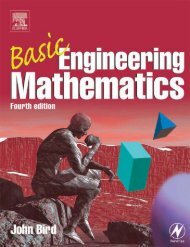- Page 2 and 3: The Secret History of the World And
- Page 4 and 5: The Secret History of the World And
- Page 6: Acknowledgements Since this book is
- Page 9 and 10: viii Table of Contents CHAPTER 3 TH
- Page 11 and 12: x Table of Contents CHAPTER 11 TIME
- Page 13 and 14: xii Preface by Patrick Rivière Pat
- Page 15 and 16: xiv A Note to the Reader reader is
- Page 17 and 18: xvi The Secret History of the World
- Page 19 and 20: xviii The Secret History of the Wor
- Page 21 and 22: xx The Secret History of the World
- Page 23: xxii The Secret History of the Worl
- Page 28 and 29: Introduction Laying the Groundwork
- Page 30 and 31: Introduction 3 saw clearly that, be
- Page 32 and 33: Introduction 5 One recent work that
- Page 34 and 35: Introduction 7 mysterious allusions
- Page 36 and 37: Introduction 9 longer hide behind w
- Page 38 and 39: Introduction 11 up the “alien age
- Page 40 and 41: Introduction 13 illegal communicati
- Page 42 and 43: Introduction 15 channeling experime
- Page 44 and 45: Introduction 17 number of bizarre e
- Page 46 and 47: Introduction 19 who believed in “
- Page 48 and 49: Introduction 21 could the average p
- Page 50 and 51: Introduction 23 What seems to be tr
- Page 52 and 53: Introduction 25 Thus, we have submi
- Page 54 and 55: Introduction 27 nature? If it is a
- Page 56 and 57: Chapter 1 The Nature of the Quest T
- Page 58 and 59: Chapter 1: The Nature of the Quest
- Page 60 and 61: Chapter 1: The Nature of the Quest
- Page 62 and 63: Chapter 1: The Nature of the Quest
- Page 64 and 65: Chapter 1: The Nature of the Quest
- Page 66 and 67: Chapter 1: The Nature of the Quest
- Page 68 and 69: Chapter 1: The Nature of the Quest
- Page 70 and 71: Chapter 1: The Nature of the Quest
- Page 72 and 73: Chapter 1: The Nature of the Quest
- Page 74 and 75:
Chapter 1: The Nature of the Quest
- Page 76 and 77:
Chapter 1: The Nature of the Quest
- Page 78 and 79:
Chapter 1: The Nature of the Quest
- Page 80 and 81:
Chapter 1: The Nature of the Quest
- Page 82 and 83:
Chapter 1: The Nature of the Quest
- Page 84 and 85:
Chapter 1: The Nature of the Quest
- Page 86 and 87:
Chapter 1: The Nature of the Quest
- Page 88 and 89:
Chapter 1: The Nature of the Quest
- Page 90 and 91:
Chapter 1: The Nature of the Quest
- Page 92 and 93:
Chapter 1: The Nature of the Quest
- Page 94 and 95:
Chapter 1: The Nature of the Quest
- Page 96 and 97:
Chapter 1: The Nature of the Quest
- Page 98 and 99:
Chapter 1: The Nature of the Quest
- Page 100 and 101:
Chapter 1: The Nature of the Quest
- Page 102 and 103:
Chapter 1: The Nature of the Quest
- Page 104 and 105:
Chapter 1: The Nature of the Quest
- Page 106 and 107:
Chapter 1: The Nature of the Quest
- Page 108 and 109:
Chapter 1: The Nature of the Quest
- Page 110 and 111:
Chapter 1: The Nature of the Quest
- Page 112:
Chapter 1: The Nature of the Quest
- Page 115 and 116:
88 The Secret History of the World
- Page 117 and 118:
90 The Secret History of the World
- Page 119 and 120:
92 The Secret History of the World
- Page 121 and 122:
94 The Secret History of the World
- Page 123 and 124:
96 The Secret History of the World
- Page 125 and 126:
98 The Secret History of the World
- Page 127 and 128:
100 The Secret History of the World
- Page 129 and 130:
102 The Secret History of the World
- Page 131 and 132:
104 The Secret History of the World
- Page 133 and 134:
106 The Secret History of the World
- Page 136 and 137:
Chapter 3 In Quest Of the Past Back
- Page 138 and 139:
Chapter 3: In Quest Of the Past 111
- Page 140 and 141:
Chapter 3: In Quest Of the Past 113
- Page 142 and 143:
Chapter 3: In Quest Of the Past 115
- Page 144 and 145:
Chapter 3: In Quest Of the Past 117
- Page 146 and 147:
Chapter 3: In Quest Of the Past 119
- Page 148:
Chapter 3: In Quest Of the Past 121
- Page 151 and 152:
124 The Secret History of the World
- Page 153 and 154:
126 The Secret History of the World
- Page 155 and 156:
128 The Secret History of the World
- Page 157 and 158:
130 The Secret History of the World
- Page 159 and 160:
132 The Secret History of the World
- Page 161 and 162:
134 The Secret History of the World
- Page 163 and 164:
136 The Secret History of the World
- Page 166 and 167:
Chapter 5 Whose World Is It, Anyway
- Page 168 and 169:
Chapter 5: Whose world is it, anywa
- Page 170 and 171:
Chapter 5: Whose world is it, anywa
- Page 172 and 173:
Chapter 5: Whose world is it, anywa
- Page 174 and 175:
Chapter 5: Whose world is it, anywa
- Page 176 and 177:
Chapter 5: Whose world is it, anywa
- Page 178 and 179:
Chapter 5: Whose world is it, anywa
- Page 180 and 181:
Chapter 5: Whose world is it, anywa
- Page 182 and 183:
Chapter 5: Whose world is it, anywa
- Page 184 and 185:
Chapter 5: Whose world is it, anywa
- Page 186 and 187:
Chapter 5: Whose world is it, anywa
- Page 188 and 189:
Chapter 5: Whose world is it, anywa
- Page 190 and 191:
Chapter 5: Whose world is it, anywa
- Page 192 and 193:
Chapter 5: Whose world is it, anywa
- Page 194 and 195:
Chapter 5: Whose world is it, anywa
- Page 196:
Chapter 5: Whose world is it, anywa
- Page 199 and 200:
172 The Secret History of the World
- Page 201 and 202:
174 The Secret History of the World
- Page 203 and 204:
176 The Secret History of the World
- Page 205 and 206:
178 The Secret History of the World
- Page 207 and 208:
180 The Secret History of the World
- Page 209 and 210:
182 The Secret History of the World
- Page 211 and 212:
184 The Secret History of the World
- Page 213 and 214:
186 The Secret History of the World
- Page 215 and 216:
188 The Secret History of the World
- Page 217 and 218:
190 The Secret History of the World
- Page 219 and 220:
192 The Secret History of the World
- Page 221 and 222:
194 The Secret History of the World
- Page 223 and 224:
196 The Secret History of the World
- Page 225 and 226:
198 The Secret History of the World
- Page 227 and 228:
200 The Secret History of the World
- Page 229 and 230:
202 The Secret History of the World
- Page 231 and 232:
204 The Secret History of the World
- Page 233 and 234:
206 The Secret History of the World
- Page 235 and 236:
208 The Secret History of the World
- Page 237 and 238:
210 The Secret History of the World
- Page 239 and 240:
212 The Secret History of the World
- Page 241 and 242:
214 The Secret History of the World
- Page 243 and 244:
216 The Secret History of the World
- Page 245 and 246:
218 The Secret History of the World
- Page 247 and 248:
220 The Secret History of the World
- Page 249 and 250:
222 The Secret History of the World
- Page 251 and 252:
224 The Secret History of the World
- Page 253 and 254:
226 The Secret History of the World
- Page 255 and 256:
228 The Secret History of the World
- Page 257 and 258:
230 The Secret History of the World
- Page 259 and 260:
232 The Secret History of the World
- Page 261 and 262:
234 The Secret History of the World
- Page 263 and 264:
236 The Secret History of the World
- Page 265 and 266:
238 The Secret History of the World
- Page 267 and 268:
240 The Secret History of the World
- Page 269 and 270:
242 The Secret History of the World
- Page 271 and 272:
244 The Secret History of the World
- Page 273 and 274:
246 The Secret History of the World
- Page 275 and 276:
248 The Secret History of the World
- Page 277 and 278:
250 The Secret History of the World
- Page 279 and 280:
252 The Secret History of the World
- Page 281 and 282:
254 The Secret History of the World
- Page 283 and 284:
256 The Secret History of the World
- Page 285 and 286:
258 The Secret History of the World
- Page 287 and 288:
260 The Secret History of the World
- Page 289 and 290:
262 The Secret History of the World
- Page 291 and 292:
264 The Secret History of the World
- Page 293 and 294:
266 The Secret History of the World
- Page 295 and 296:
268 The Secret History of the World
- Page 297 and 298:
270 The Secret History of the World
- Page 299 and 300:
272 The Secret History of the World
- Page 301 and 302:
274 The Secret History of the World
- Page 303 and 304:
276 The Secret History of the World
- Page 305 and 306:
278 The Secret History of the World
- Page 307 and 308:
280 The Secret History of the World
- Page 309 and 310:
282 The Secret History of the World
- Page 311 and 312:
284 The Secret History of the World
- Page 313 and 314:
286 The Secret History of the World
- Page 315 and 316:
288 The Secret History of the World
- Page 317 and 318:
290 The Secret History of the World
- Page 319 and 320:
292 The Secret History of the World
- Page 321 and 322:
294 The Secret History of the World
- Page 323 and 324:
296 The Secret History of the World
- Page 325 and 326:
298 The Secret History of the World
- Page 327 and 328:
300 The Secret History of the World
- Page 329 and 330:
302 The Secret History of the World
- Page 331 and 332:
304 The Secret History of the World
- Page 333 and 334:
306 The Secret History of the World
- Page 335 and 336:
308 The Secret History of the World
- Page 337 and 338:
310 The Secret History of the World
- Page 339 and 340:
312 The Secret History of the World
- Page 341 and 342:
314 The Secret History of the World
- Page 343 and 344:
316 The Secret History of the World
- Page 345 and 346:
318 The Secret History of the World
- Page 347 and 348:
320 The Secret History of the World
- Page 349 and 350:
322 The Secret History of the World
- Page 351 and 352:
324 The Secret History of the World
- Page 353 and 354:
326 The Secret History of the World
- Page 355 and 356:
328 The Secret History of the World
- Page 357 and 358:
330 The Secret History of the World
- Page 359 and 360:
332 The Secret History of the World
- Page 361 and 362:
334 The Secret History of the World
- Page 363 and 364:
336 The Secret History of the World
- Page 365 and 366:
338 The Secret History of the World
- Page 367 and 368:
340 The Secret History of the World
- Page 369 and 370:
342 The Secret History of the World
- Page 372 and 373:
Chapter 10 Who Wrote the Bible and
- Page 374 and 375:
Chapter 10: Who Wrote the Bible and
- Page 376 and 377:
Chapter 10: Who Wrote the Bible and
- Page 378 and 379:
Chapter 10: Who Wrote the Bible and
- Page 380 and 381:
Chapter 10: Who Wrote the Bible and
- Page 382 and 383:
Chapter 10: Who Wrote the Bible and
- Page 384 and 385:
Chapter 10: Who Wrote the Bible and
- Page 386 and 387:
Chapter 10: Who Wrote the Bible and
- Page 388 and 389:
Chapter 10: Who Wrote the Bible and
- Page 390 and 391:
Chapter 10: Who Wrote the Bible and
- Page 392 and 393:
Chapter 10: Who Wrote the Bible and
- Page 394 and 395:
Chapter 10: Who Wrote the Bible and
- Page 396 and 397:
Chapter 10: Who Wrote the Bible and
- Page 398 and 399:
Chapter 10: Who Wrote the Bible and
- Page 400 and 401:
Chapter 10: Who Wrote the Bible and
- Page 402 and 403:
Chapter 10: Who Wrote the Bible and
- Page 404 and 405:
Chapter 10: Who Wrote the Bible and
- Page 406 and 407:
Chapter 10: Who Wrote the Bible and
- Page 408 and 409:
Chapter 10: Who Wrote the Bible and
- Page 410 and 411:
Chapter 10: Who Wrote the Bible and
- Page 412 and 413:
Chapter 10: Who Wrote the Bible and
- Page 414 and 415:
Chapter 10: Who Wrote the Bible and
- Page 416 and 417:
Chapter 10: Who Wrote the Bible and
- Page 418 and 419:
Chapter 10: Who Wrote the Bible and
- Page 420 and 421:
Chapter 10: Who Wrote the Bible and
- Page 422 and 423:
Chapter 10: Who Wrote the Bible and
- Page 424 and 425:
Chapter 10: Who Wrote the Bible and
- Page 426 and 427:
Chapter 10: Who Wrote the Bible and
- Page 428 and 429:
Chapter 10: Who Wrote the Bible and
- Page 430 and 431:
Chapter 10: Who Wrote the Bible and
- Page 432 and 433:
Chapter 10: Who Wrote the Bible and
- Page 434 and 435:
Chapter 10: Who Wrote the Bible and
- Page 436 and 437:
Chapter 10: Who Wrote the Bible and
- Page 438 and 439:
Chapter 10: Who Wrote the Bible and
- Page 440 and 441:
Chapter 10: Who Wrote the Bible and
- Page 442 and 443:
Chapter 10: Who Wrote the Bible and
- Page 444 and 445:
Chapter 10: Who Wrote the Bible and
- Page 446 and 447:
Chapter 10: Who Wrote the Bible and
- Page 448 and 449:
Chapter 10: Who Wrote the Bible and
- Page 450 and 451:
Chapter 10: Who Wrote the Bible and
- Page 452 and 453:
Chapter 10: Who Wrote the Bible and
- Page 454 and 455:
Chapter 10: Who Wrote the Bible and
- Page 456 and 457:
Chapter 10: Who Wrote the Bible and
- Page 458 and 459:
Chapter 10: Who Wrote the Bible and
- Page 460 and 461:
Chapter 10: Who Wrote the Bible and
- Page 462 and 463:
Chapter 10: Who Wrote the Bible and
- Page 464 and 465:
Chapter 10: Who Wrote the Bible and
- Page 466 and 467:
Chapter 10: Who Wrote the Bible and
- Page 468 and 469:
Chapter 10: Who Wrote the Bible and
- Page 470 and 471:
Chapter 10: Who Wrote the Bible and
- Page 472 and 473:
Chapter 10: Who Wrote the Bible and
- Page 474 and 475:
Chapter 10: Who Wrote the Bible and
- Page 476 and 477:
Chapter 10: Who Wrote the Bible and
- Page 478 and 479:
Chapter 10: Who Wrote the Bible and
- Page 480 and 481:
Chapter 10: Who Wrote the Bible and
- Page 482 and 483:
Chapter 10: Who Wrote the Bible and
- Page 484 and 485:
Chapter 10: Who Wrote the Bible and
- Page 486 and 487:
Chapter 10: Who Wrote the Bible and
- Page 488 and 489:
Chapter 10: Who Wrote the Bible and
- Page 490 and 491:
Chapter 10: Who Wrote the Bible and
- Page 492 and 493:
Chapter 10: Who Wrote the Bible and
- Page 494 and 495:
Chapter 11 Time The Cult of the Hea
- Page 496 and 497:
Chapter 11: Time 469 Baphomet has b
- Page 498 and 499:
Chapter 11: Time 471 and terminated
- Page 500 and 501:
Chapter 11: Time 473 We have looked
- Page 502 and 503:
Chapter 11: Time 475 with staves wa
- Page 504 and 505:
Chapter 11: Time 477 supposed to ha
- Page 506 and 507:
Chapter 11: Time 479 Jewish communi
- Page 508 and 509:
Chapter 11: Time 481 economic facil
- Page 510 and 511:
Chapter 11: Time 483 Dumuzi Bad-tab
- Page 512 and 513:
Chapter 11: Time 485 a system using
- Page 514 and 515:
Chapter 11: Time 487 Sargon Reprise
- Page 516 and 517:
Chapter 11: Time 489 They were wond
- Page 518 and 519:
Chapter 11: Time 491 The northern c
- Page 520 and 521:
Chapter 11: Time 493 Even if in Cat
- Page 522 and 523:
Chapter 11: Time 495 were also inva
- Page 524 and 525:
Chapter 11: Time 497 shape megalith
- Page 526 and 527:
Chapter 11: Time 499 many social hi
- Page 528 and 529:
Chapter 11: Time 501 motifs, and al
- Page 530 and 531:
Chapter 11: Time 503 oxen, sheep an
- Page 532 and 533:
Chapter 11: Time 505 meaning the su
- Page 534 and 535:
Chapter 11: Time 507 In any event,
- Page 536 and 537:
Chapter 11: Time 509 believe the hy
- Page 538 and 539:
Chapter 11: Time 511 needs to be un
- Page 540 and 541:
Chapter 11: Time 513 Since the 1940
- Page 542 and 543:
Chapter 11: Time 515 And we see it
- Page 544 and 545:
Chapter 11: Time 517 of the “cons
- Page 546 and 547:
Chapter 11: Time 519 […] Q: (L) I
- Page 548 and 549:
Chapter 11: Time 521 Q: (L) Now, yo
- Page 550 and 551:
Chapter 11: Time 523 A: Leaves are
- Page 552:
Chapter 11: Time 525 Q: (L) What wa
- Page 555 and 556:
528 The Secret History of the World
- Page 557 and 558:
530 The Secret History of the World
- Page 559 and 560:
532 The Secret History of the World
- Page 561 and 562:
534 The Secret History of the World
- Page 563 and 564:
536 The Secret History of the World
- Page 565 and 566:
538 The Secret History of the World
- Page 567 and 568:
540 The Secret History of the World
- Page 569 and 570:
542 The Secret History of the World
- Page 571 and 572:
544 The Secret History of the World
- Page 573 and 574:
546 The Secret History of the World
- Page 575 and 576:
548 The Secret History of the World
- Page 577 and 578:
550 The Secret History of the World
- Page 579 and 580:
552 The Secret History of the World
- Page 581 and 582:
554 The Secret History of the World
- Page 583 and 584:
556 The Secret History of the World
- Page 585 and 586:
558 The Secret History of the World
- Page 587 and 588:
560 The Secret History of the World
- Page 589 and 590:
562 The Secret History of the World
- Page 591 and 592:
564 The Secret History of the World
- Page 593 and 594:
566 The Secret History of the World
- Page 595 and 596:
568 The Secret History of the World
- Page 597 and 598:
570 The Secret History of the World
- Page 599 and 600:
572 The Secret History of the World
- Page 601 and 602:
574 The Secret History of the World
- Page 603 and 604:
576 The Secret History of the World
- Page 605 and 606:
578 The Secret History of the World
- Page 607 and 608:
580 The Secret History of the World
- Page 609 and 610:
582 The Secret History of the World
- Page 611 and 612:
584 The Secret History of the World
- Page 613 and 614:
586 The Secret History of the World
- Page 615 and 616:
588 The Secret History of the World
- Page 617 and 618:
590 The Secret History of the World
- Page 619 and 620:
592 The Secret History of the World
- Page 621 and 622:
594 The Secret History of the World
- Page 623 and 624:
596 The Secret History of the World
- Page 625 and 626:
598 The Secret History of the World
- Page 627 and 628:
600 The Secret History of the World
- Page 629 and 630:
602 The Secret History of the World
- Page 631 and 632:
604 The Secret History of the World
- Page 633 and 634:
606 The Secret History of the World
- Page 635 and 636:
608 The Secret History of the World
- Page 637 and 638:
610 The Secret History of the World
- Page 639 and 640:
612 The Secret History of the World
- Page 641 and 642:
614 The Secret History of the World
- Page 643 and 644:
616 The Secret History of the World
- Page 646 and 647:
Afterword At the present time, when
- Page 648 and 649:
Afterword 621 This tragic aspect is
- Page 650 and 651:
Afterword 623 are applied to the so
- Page 652 and 653:
Afterword 625 A: Near tracks well w
- Page 654 and 655:
Afterword 627 “We must not forget
- Page 656 and 657:
Afterword 629 displease Dan Brown (
- Page 658 and 659:
Afterword 631 openly in one of the
- Page 660 and 661:
Afterword 633 The remark: “Minera
- Page 662 and 663:
Afterword 635 Q: Is it the case tha
- Page 664 and 665:
Afterword 637 Fulcanelli inserted a
- Page 666 and 667:
Afterword 639 Now the universe is n
- Page 668 and 669:
Afterword 641 I have read and studi
- Page 670 and 671:
Afterword 643 of the soldura will n
- Page 672 and 673:
Afterword 645 The best known and mo
- Page 674 and 675:
Afterword 647 and she is also refer
- Page 676 and 677:
Afterword 649 of Artemis and was se
- Page 678 and 679:
Afterword 651 the key instead of ta
- Page 680 and 681:
Afterword 653 There were new source
- Page 682 and 683:
Afterword 655 said that, in 1538, h
- Page 684 and 685:
Afterword 657 The word sar means he
- Page 686 and 687:
Afterword 659 some very serious mat
- Page 688 and 689:
Afterword 661 the domination of the
- Page 690 and 691:
Afterword 663 with knives, and so o
- Page 692 and 693:
Afterword 665 Clearly, in 1548, and
- Page 694 and 695:
Afterword 667 As he aged, Leonardo
- Page 696 and 697:
Afterword 669 open spaces, and can
- Page 698 and 699:
Afterword 671 essay, “Leonardo da
- Page 700 and 701:
Afterword 673 and 1508, he produced
- Page 702 and 703:
Afterword 675 take up a piece of br
- Page 704 and 705:
Afterword 677 ULUGH BEY says its Ar
- Page 706:
Afterword 679 Patrick Rivière, alc
- Page 709 and 710:
682 The Secret History of the World
- Page 711 and 712:
684 The Secret History of the World
- Page 713 and 714:
686 The Secret History of the World
- Page 715 and 716:
688 The Secret History of the World
- Page 717 and 718:
690 The Secret History of the World
- Page 719 and 720:
692 The Secret History of the World
- Page 721 and 722:
694 The Secret History of the World
- Page 723 and 724:
696 The Secret History of the World
- Page 725 and 726:
698 The Secret History of the World
- Page 727 and 728:
700 The Secret History of the World
- Page 729 and 730:
702 The Secret History of the World
- Page 731 and 732:
704 The Secret History of the World
- Page 733 and 734:
706 The Secret History of the World
- Page 735 and 736:
708 The Secret History of the World
- Page 737 and 738:
710 The Secret History of the World
- Page 739 and 740:
712 The Secret History of the World
- Page 741 and 742:
714 The Secret History of the World
- Page 743 and 744:
716 The Secret History of the World
- Page 745 and 746:
718 The Secret History of the World
- Page 747 and 748:
720 The Secret History of the World
- Page 749 and 750:
722 The Secret History of the World
- Page 751 and 752:
724 The Secret History of the World
- Page 753 and 754:
726 The Secret History of the World
- Page 755 and 756:
728 The Secret History of the World
- Page 757 and 758:
730 The Secret History of the World
- Page 759 and 760:
732 The Secret History of the World
- Page 761 and 762:
734 The Secret History of the World
- Page 763 and 764:
736 The Secret History of the World
- Page 765 and 766:
738 The Secret History of the World
- Page 767 and 768:
740 The Secret History of the World
- Page 769 and 770:
742 The Secret History of the World
- Page 771 and 772:
744 The Secret History of the World
- Page 773 and 774:
746 The Secret History of the World
- Page 775 and 776:
748 The Secret History of the World
- Page 777 and 778:
750 The Secret History of the World
- Page 779 and 780:
752 The Secret History of the World
- Page 781 and 782:
754 The Secret History of the World
- Page 783 and 784:
756 The Secret History of the World
- Page 785 and 786:
758 The Secret History of the World
- Page 787 and 788:
760 The Secret History of the World
- Page 789 and 790:
762 The Secret History of the World
- Page 791 and 792:
764 The Secret History of the World
- Page 793 and 794:
766 The Secret History of the World
- Page 795 and 796:
768 The Secret History of the World
- Page 797 and 798:
770 The Secret History of the World
- Page 799 and 800:
772 The Secret History of the World
- Page 801 and 802:
774 The Secret History of the World
- Page 803 and 804:
776 The Secret History of the World
- Page 805 and 806:
778 The Secret History of the World
- Page 807 and 808:
780 The Secret History of the World
- Page 809 and 810:
782 The Secret History of the World
- Page 811 and 812:
esearch and insights from hard-won


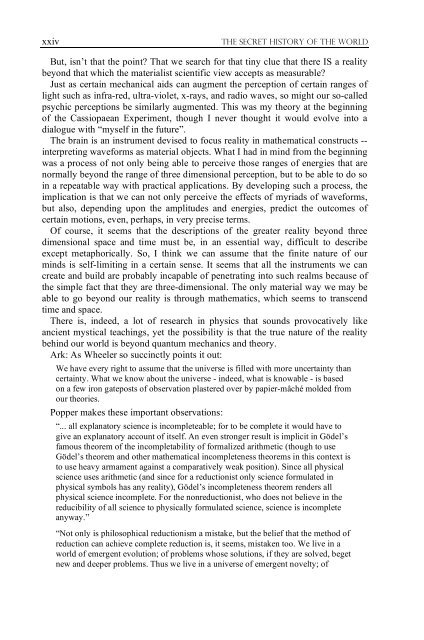

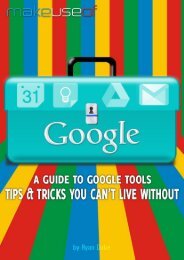

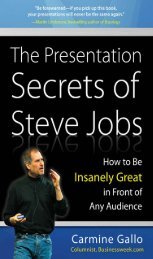
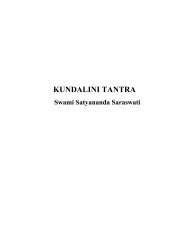
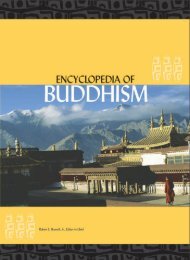

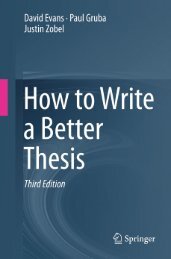
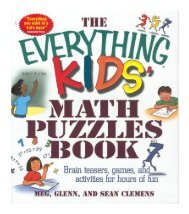

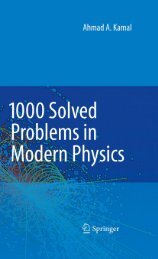
![[Lonely Planet] Sri Lanka](https://img.yumpu.com/59845622/1/169x260/lonely-planet-sri-lanka.jpg?quality=85)


